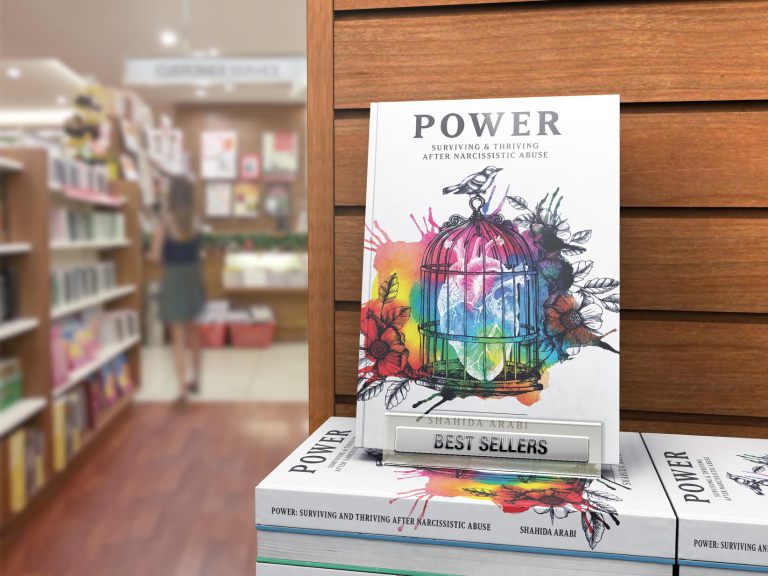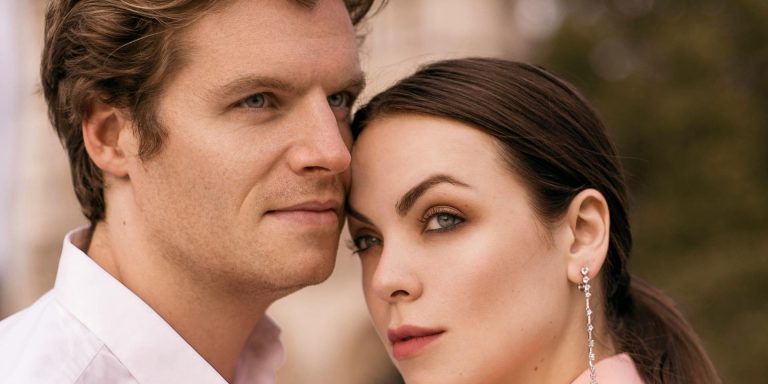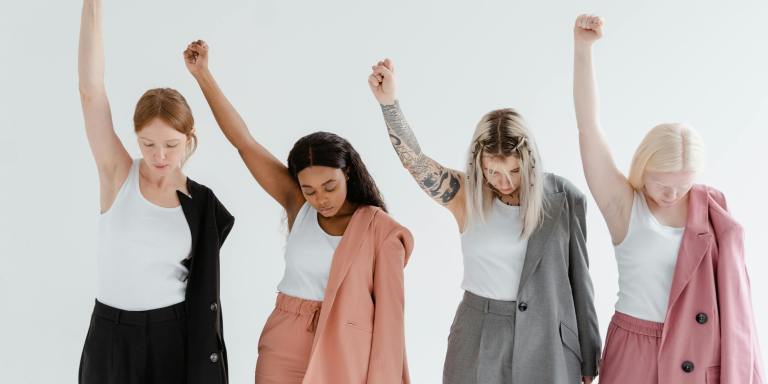You can’t be happy when single. You need marriage and children in order to be a “whole person.”
Au contraire, single and childfree women actually make up one of the happiest groups according to research. According to Harvard researcher Dr. Bella DePaulo, studies reveal that single people can experience numerous benefits of singlehood. They can be just as happy, healthy, and wealthy, in some cases even healthier, wealthier and happier than their coupled counterparts. After the honeymoon period, studies show that marriage generally does not make people substantially happier long-term unless your marriage is a healthy one that lasts a long time (ten years or more). This is especially true for married women, who tend to experience an increase in their psychological distress transitioning into marriage and lower life satisfaction after the honeymoon period, presumably because they’re often expected to take on far more emotional and domestic labor in relationships. A long-lasting marriage only yields consistent benefits when you are with the right partner – when you are not with the right partner (whether an incompatible partner or someone who is toxic or abusive) it can drain your mental health, finances, self-esteem, and derail your entire life.
There’s a reason why there is more single people than we’ve ever seen rising in the general population, even internationally and why so many marriages end in divorce: many people, particularly women who used to marry for survival, now have the financial means to raise their standards for committed partnership. Marriage and childrearing are steep investments to make, especially for working women whose partners do not share the domestic labor. Unless you’re with a generous partner who has empathy, emotional availability, and compatible traits, you will find that marriage and children often presents a great deal of difficulty and demands additional labor.
Single people are too picky. They should just “settle” so they can be “chosen.”
While there are certainly lifelong single people who’ve chosen to be single for long periods of time, many single people actually begin to enjoy the single life after experiencing numerous relationships. They’ve been “chosen” many times by different partners. However, they find the single life to be more peaceful, joyful, and rewarding than a long-term relationship where they would have to settle for someone who doesn’t meet their standards. They are not too “picky” or choosy – they are selective and have boundaries. They may have simply learned the hard way that their precious energy cannot be wasted on toxic people who don’t add value to their lives. Time isn’t running out for them because they know they aren’t missing out on anything if they’re not with the right partner – they’re busy working on themselves, pursuing their dreams, and leading fulfilling lives outside of a relationship. To settle for a partner just to say you are married or to raise children with a person you don’t truly love or who mistreats you is not a situation we should wish for anyone. Pressuring single people to lower their standards to make you comfortable will not benefit anyone, least of all future generations.
They’re forever alone.
Studies show that single people tend to have stronger social networks than those in relationships, are more likely to value meaningful work, and can experience greater psychological growth. Everyone will experience singlehood in their lives at some point whether they decide to have a long-term relationship or not. It is normal. Single is a current relationship status – not necessarily a permanent state of being unless someone actively chooses to be a lifelong single person and it doesn’t tell you anything aside from whether or not they are currently in a committed relationship. There is a variety of people who have this status. This includes people who have jumped from relationship to relationship and are finally taking time and space to heal. It includes people who have had multiple short-term and long-term relationships and find most peace in being alone. It includes people who’ve chosen to leave toxic relationships and are celebrating their freedom. It includes people who are not willing to settle below their standards. It includes divorced people who are happier now that they’ve left their marriage. It includes people who are focused on their careers and building their finances. It includes people who are deeply connected with their friends and family members. It includes people who are extroverted social butterflies and those who are introverts. It includes people who’ve had many sexual partners and it includes people who have always been celibate. It includes people raising children and people who are childfree. It includes people who are actively dating but not looking for anything serious. You cannot assume someone is lonely or has been lonely for a long time just because of their relationship status, especially considering that many people feel lonelier when they’re in the wrong relationship.
Singlehood is About Desirability
You’ve seen many attractive celebrities and high-ranking professionals who are single. You see intelligent, successful, funny, empathic powerhouses who are single. You have also seen toxic, narcissistic, unsavory people in relationships. Yet the myth of “desirability” still seems to enter the conversation any time the discussion turns to relationship status. While single men aren’t often interrogated about why they are single because they are assumed to want to be continual bachelors, single women are constantly poked and prodded about their dating life ruthlessly. It’s automatically assumed something “must be wrong” with single women, though that assumption is rarely ever directed at their male counterparts. However, what we know from research tells a drastically different story: it suggests that people with desirable traits actually tend to be targeted for manipulation and abuse. People with toxic and narcissistic traits tend to be maliciously envious of their partners and devalue their attractive partners to further control them. They choose attractive partners yet end up chasing them away because they cannot sustain healthy partnerships and feel threatened by them. We also know from numerous studies that smart, successful women – and even funny women – tend to be discriminated against in the dating world because of insecurity and misogyny. Clearly, your relationship status has little to do with your attractiveness or desirable traits. Given that these desirable traits are criticized, exploited, and devalued, especially in women, why are we still asking women why they’re single? At this point, they may be single because they have these desirable traits and are more selective about who they date. Thousands if not millions of women across social media speak out every day about “giving up” on dating and leaving the dating scene because they find the current dating pool toxic yet find themselves under the microscope under society’s scrutinizing gaze. Perhaps it’s time to turn our focus toward why women are finding the dating climate such an inhospitable place to pursue love, rather than shaming single women for their standards.
People who are single hate being alone and are desperate to avoid it, so you should definitely pressure them to have a relationship.
Don’t rush to “set up” your single friends with people unless they explicitly ask or ever project pity onto them, especially when you yourself are in a toxic or incompatible relationship. And if you are the single friend who’s always being belittled by your coupled friends who seem to be hyperaware of your relationship status, be wary. Genuinely happy couples won’t shame you or hyperfocus on your single status, nor will they try to compare their lives to yours or make you feel smaller due to your relationship status. Beware of couples who engage in “public flaunting” to a problematic extent because those are the ones who are likely hiding something. For example, according to research, showing off a relationship excessively on social media is actually associated with lower relationship satisfaction and is likely to happen due to overcompensation. Don’t trust everything you see and don’t trust any of your friends who shame you for being single – they likely just want someone to commiserate with because misery loves company. A relationship on its own is not an accomplishment and people who are happy single don’t need to enter a miserable relationship just to please society. There are many single people who enjoy being single and thrive in singlehood. There are also people who don’t enjoy it because they can’t stand their own company or feel socially pressured to have a relationship.
We have to dispel the myth that single people are one homogenous group where every single person feels the exact same way about relationships. Some are ultimately searching for their true love yet happily taking the time for personal growth while being single. Others are not focused on a relationship at all because they don’t plan to have one, either right now or ever in the future. Some find intense euphoria in solitude and enjoy going out on their own and traveling solo. Others find euphoria in strong friendships. Every single person is different and has their own unique needs and desires. Rather than assuming that every single person is looking for a partner or desperately wants it, learn to decenter relationships more and ask your single friends about their lives outside of dating and learn to celebrate achievements that have nothing to do with having a partner. People are complex and multifaceted and there is more to a life than someone’s relationship status.








